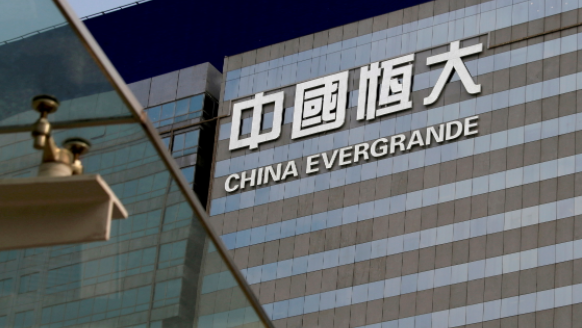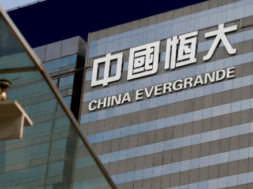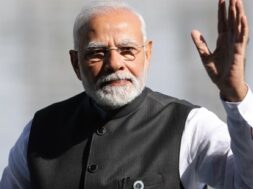
Roving Periscope: Bleeding Dragon’s precarious perch on the Great Wall!
Virendra Pandit
New Delhi: Even nursery school toddlers learn this rhyme by heart:
Humpty Dumpty sat on a wall
Humpty Dumpty had a great fall
All the king’s horses and all the king’s men
Couldn’t put Humpty together again!
But not the People’s Republic of China (PRC). It never went to the School of Natural Wisdom. And so did not learn from the bloodbath on many countries’ economies caused by the 2008 Lehmann Brothers’ sudden collapse in the USA.
The moment of reckoning is fast catching up with the PRC’s economy as the bleeding Dragon perches precariously on the Great Wall of China.
But its arrogance and paranoia of self-supremacy are undiminished. This week, its buffeted President-for-Life Xi Jinping, for example, refused to take the offer of a Summit even after 90-minutes of talks with Joe Biden, the US President-for-Four/Eight Years—unless Washington lifted the sanctions and restrictions.
Beijing also refused to take cognizance of its global downgrade in the same week when, in an unprecedented development, both the Speakers of the British Parliament, Lindsay Hoyle (House of Commons), and John McFall (House of Lords) stepped in to prevent Chinese Ambassador to London, Zheng Zeguang, from speaking at an event in Parliament.
Why?
Because Beijing imposed sanctions on nine British lawmakers, politicians, and academics in March 2021 for highlighting human rights violations in the Muslim-dominated Xinjiang province. Of course, Beijing claimed reports of these abuses were “lies and disinformation” over the treatment of native Uyghur Muslims in the country’s restive far-western province, bordering Afghanistan.
Notice Beijing’s duplicity and hypocrisy: China refuses a Summit with the US because of Washington’s sanctions, and China sanctions the British because they expose the truth.
No one is, therefore, buying China’s lies anymore. Not even the Chinese!
See, for instance, the ‘imminent’ collapse of China’s biggest player in the property development business, the Evergrande Group. Hundreds of panicked and angry protesters are demonstrating daily before its Hong Kong office demanding their money back.
“It’s a mess. The property company’s woes are being compared to the collapse of Lehman Brothers, which froze up the finance industry during the crisis of 2007-08,” a media report said.
Evergrande faces Chinese Yuan 97 trillion (USD 306 billion) in liabilities. Its sales plunged nearly 40 percent in June-July and another 13 percent in July-August. On Tuesday, it said it is unable to sell its assets fast enough in order to repay a mounting debt of USD 306 billion. This was followed by the company’s shares plunging by nearly 12 percent.
And the government has told major banks that the embattled privately-owned property behemoth will be unable to make loan interest payments due on September 20.
Clearly, the Communist Government has no idea of how to deal with this ballooning ‘capitalist’ problem of over-leveraging—sowing zeroes and expecting to harvest numbers. In other words, Beijing can no longer announce a stimulus to keep Evergrande going. It is already burdened with regulatory woes of industries like digital payments, videogames, e-cigarettes, for-profit tutoring, ride-hailing, grocery delivery, etc, according to media reports.
China’s financial problems began to mount in 2020 when Beijing, suspected of being the source of the Covid-19 pandemic, lost the trust of many nations and faced rough weather on its most ambitious expansionist plan: the USD 200 billion Belt and Road Initiative (BRI). Many countries decided to wriggle out of the BRI’s debt-traps woven around some 1,500 projects across Asia, Africa, and Europe; even the broke Pakistanis, once proud of the China-Pakistan Economic Corridor (CPEC), the BRI’s flagship project, raised concerns.
In October 2020, a confused Beijing started tightening screws on its 800-plus billionaires, starting with Alibaba’s Jack Ma, the second best known Chinese after Xi Jinping across the world. In a series of “regulatory actions”, and the threat to redistribute wealth from the rich to the poor, China began to slaughter the hen that laid golden eggs to fuel its expansionist ambitions. Without incentive and the freedom to create wealth, no economy has succeeded in the long run; it made the capitalist model of economy successful over the last couple of centuries, vis-à-vis the Communist model which has been collapsing in one country after another.
Due to the worldwide lockdowns in the pandemic months, the global economy suffered grievously and the people’s purchasing power plummeted. This triggered a bloodbath on China’s export-dependent economy and brought many industries to the brink of closure. These included Evergrande. Its founder Hui Ka-yan (Xu Jiain) was Asia’s richest man in 2017, with his net worth being USD 42.2 billion; it fell to USD 11.4 billion in 2020 and is now USD 8.03 billion.
The Evergrande Group’s nearly 1,300 projects across 170 Chinese cities, to fund which it borrowed extensively overseas with high-yield bonds and high-return wealth management funds, has almost gone bust. Rating agencies are regularly downgrading Evergrande, which has panicked investors at home and abroad alike. Any default on September 20 will trigger a chain reaction for the company, for others, and a Pandora’s Box for Beijing itself.
Overall, Evergrande’s shares have been 80 percent down year-to-date and the stock in this umbrella holding company has fallen nearly 90 percent since a peak in July 2020. Its bonds are trading around 65 percent below par value and its subsidiaries and cross-holdings, burdened with their own debts, are also in the same mud, and efforts to sell them off have failed, media reports said.
Interestingly, despite Evergrande being a top property developer it only constitutes only around 4 percent of the residential property market in a highly fragmented industry. But its crisis has alarmed home buyers across China and any sudden collapse of this company could start a cascading effect on other companies as the panicked people could start withdrawing their money.
Real estate is the largest private-sector industry in China, accounting for nearly 14 percent of the entire economy. If buyers stop buying there, it poses a real macroeconomic risk, the media reported.
But real estate is not the only real story of the Chinese economy’s slide.
With demand for its products diminishing and the overall economy in the dumps, China is also selling off some of the oil it keeps in strategic reserve in a bid to lower prices in the market. This decision was a historic first for the world’s largest importer of oil and its second-largest consumer. The Chinese decision led to a fall in oil prices globally.
In 2017, China had revealed that it had nine major reserve bases across the country with a combined capacity to hold 37.7 million tons of crude. Beijing planned to store 85 million tons of oil by 2020, nearly as much as the US keeps in its strategic petroleum reserve, the world’s largest backup oil supply.













